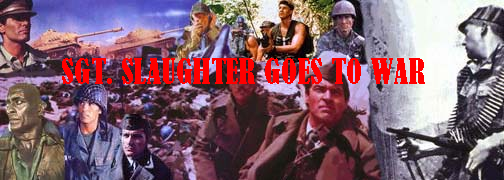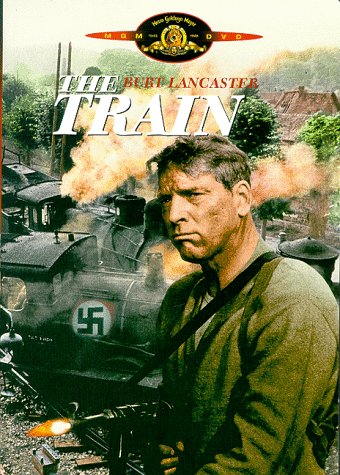

DIRECTOR:
John Frankenheimer
CAST:
Burt Lancaster, Paul Scofield, Jeanne Moreau, Michel Simon, Jacques Marin, Wolfgang Preiss, Suzanne Flon, Albert Remy, Richard Munch, Howard Vernon, Charles Millot, Donald O'Brien, Arthur Brauss and Victor Beaumont.
REVIEW:
Absolutely riveting thriller, an American-French co-production, with a great cast, well-written plot and script - and great stuntwork. As with all of John Frankenheimer's work, it's an instantly classic masterpiece.
Burt Lancaster is Labiche, a French station manager who becomes entangled in efforts to prevent German Colonel Von Waldheim (Scofield) from shipping hundreds of classic pieces of artwork out of Paris before the Allies re-take the city.
John Frankenheimer has done an excellent job putting every aspect of great storytelling together. The most essential part is the characters. Lancaster is absolutely great as Labiche. While the French want him to simply delay the train, Labiche is always more concerned about the human cost. Eventually, so many men are killed in the attempt to delay the train that he takes it upon himself to save the artwork so they did not die in vain. On the opposite side, Scofield makes a very believable, maniacal officer. He is purely obsessed by art. He's not your typical Hollywood "Nazi" officer; here, his one goal is not eradication of the Jews or whatnot - it's to steal millions of dollars worth of paintings for personal gain.
The French are played, for the most part, by young native French actors. Michel Simon plays a grizzled old engineer who tries to take matters into his own hands, at first, when Labiche won’t aide the cause. Albert Remy (Is Paris Burning?) and Charles Millot (The Battle of Neretva) are Labiche's resistance sidekicks, both passionate in their rather minor roles. Jeanne Moreau (The Victors) makes a pretty big impression as a hotel owner who gets caught up the fight and elects to help Labiche, even though it will hurt her business and put her life in danger.
In support, the cast is made up of some very fine young actors who would become mainstream faces in later European war movies. Wolfgang Preiss (The Longest Day) makes an impression as the German Major commanding a rail yard, who is just simply trying to keep his facility running well and doesn't want to deal with Von Waldheim. The great Richard Munch (Patton) has one strong scene as a German general, who knows the front line battle is more important than Von Waldheim's art. Howard Vernon (From Hell to Victory) is the German captain with glasses in charge of the train; Donald O'Brien (Deadly Mission) is a very mean-looking Sergeant keeping Lancaster and Remy in check; and Arthur Brauss plays the German Captain interrogating the stationmaster.
The second essential portion of the story goes to the purely technical side of the production. First of all, there are some truly spectacular action sequences. Most of them were done with real locomotives, on life-size sets with authentic explosions. One huge, three-way head-on-collision is awe-striking and must have marvelous to see on the big screen. Lancaster performs all of his own stunts; jumping from control towers, running and catching moving trains - all, one would think, would be difficult for a man of 51 - but Lancaster doesn't show a bit of strain. A good deal of the action centers around simply moving trains and equipment through railyards, and it's all portrayed with acute attention to authenticity and detail.
At key moments, Frankenheimer uses his typical unorthodox filming technique to give the action a new perspective. The camera zooms in on every day objects, which actually have key importance at that one moment. He follows Labiche down a hallway with a handheld camera simply because it's the best way of showing how he gets to where he's going. All of this is trademark Frankenheimer direction, and it gives the film a sharp, cutting edge to its already awesome plot. Sincerely, standard direction with all of the same elements would really lessen the impact of the punch every other element packs.
A few side notes: the scenery is great; each town, village set piece, actual location or open countryside looks just like 1944 France. Maurice Jarre's rousing music score is great and is quickly becoming one of my favorite war movie themes, ranking with the works of Jerry Goldsmith, Ennio Morricone, Elmer Bernstein and John Williams.
The Train is an instant classic from the Golden Age of cinema, with every element working perfectly.
SGT. SLAUGHTER'S RATING:
5 Bullets